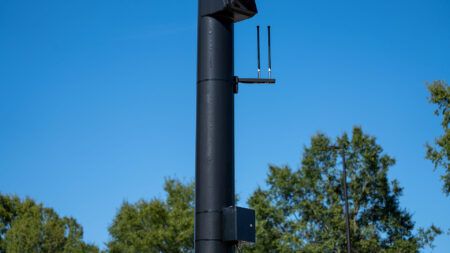Multidisciplinary engineering and infrastructure consultancy WSP USA (formerly WSP | Parsons Brinckerhoff) is contributing design services to a Colorado Department of Transportation (CDOT) project piloting a radical new ‘smart pavement’ technology.
Developed by Missouri-based startup Integrated Roadways, the modular ‘smart pavement’ technology is intended to increase road safety and boost vehicle connectivity. Part of CDOT’s RoadX initiative to use next-generation innovations to solve infrastructure challenges, the project will see the implementation of a new road technology that is equipped with sensors that can tell where cars are, what direction they are moving, and how fast they are going.
WSP will design a half-mile pilot section of smart pavement on US 285 north of Fairplay, which is an area of the highway that has a reverse curve at the end of a long straightaway, and was the location of high number of run-off-the-road accidents. It is on those curves where the new pavement technology will be installed to see if it can improve driver safety.
Integrated Roadways’ ‘smart pavement’ features precast concrete pavement slabs embedded with upgradable technology. Operating in a similar way to the touchscreen on a smartphone or tablet, sensors in the pavement can ‘feel’ the positions, weights and velocity of every vehicle on the road, providing superior navigation and telemetry for Level 4 autonomous vehicles, and capturing valuable traffic and usage data.
The sensors allow the pavement to alert authorities if a vehicle has exited the driving lane at a speed and trajectory that indicate the vehicle has left the road. Future versions will incorporate wireless services to communicate real-time vehicle position information directly to vehicles. Pending results of a smaller proof-of-concept installation on a Denver roadway, construction of the testbed on US 285 could begin in spring 2019.
“Smart pavement is the next-generation in road construction,” explained Tim Sylvester, founder of Integrated Roadways. “By treating the roadway as a series of concrete sensor pads connected to a digital network, we can improve safety, collect real-time traffic data, record daily, seasonal, and annual traffic patterns, and support the deployment of connected and autonomous vehicles, among other things.
“Because the roadway can generate revenue from data and connectivity services, smart pavement holds the potential of using private investments to improve public infrastructure without implementing tolls.”
Tim Harris, client relations manager at WSP USA, commented, “This is an exciting opportunity to introduce a game-changing highway technology that will improve the safety of motorists in Colorado. CDOT is very interested in using new technologies, and we are thrilled to have the opportunity to collaborate with them on this implementation.”




